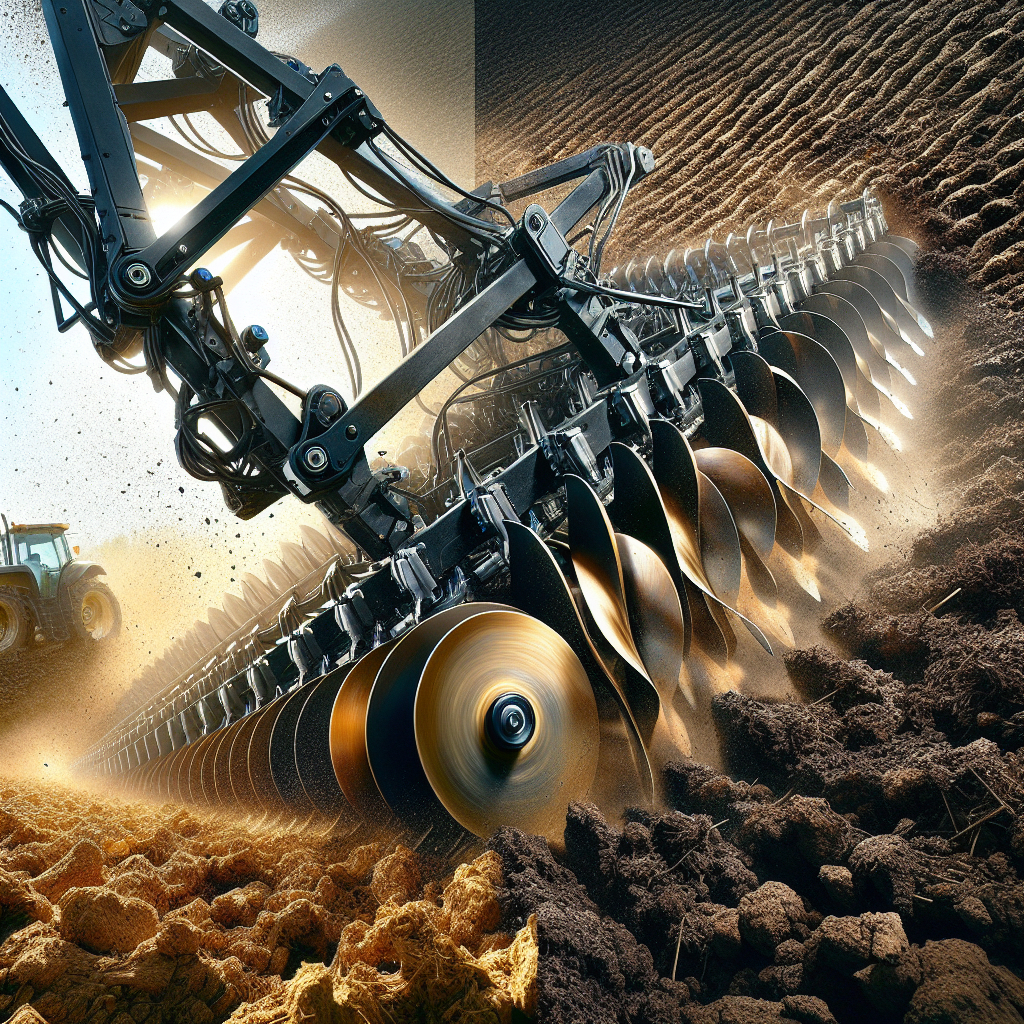Choosing the right plow for your soil can significantly impact the efficiency and effectiveness of your farming operations. In this article, we will compare disc plows and chisel plows, examining their advantages and disadvantages to help you make an informed decision.
Understanding Disc Plows
Disc plows are a popular choice among farmers due to their versatility and ability to handle a variety of soil conditions. They consist of a series of concave discs mounted on a frame, which cut through the soil and turn it over. This type of plow is particularly effective in breaking up hard, compacted soils and cutting through crop residues.
Advantages of Disc Plows
- Versatility: Disc plows can be used in a wide range of soil types, from sandy to clayey soils. They are also effective in both dry and wet conditions.
- Residue Management: The design of disc plows allows them to cut through and incorporate crop residues into the soil, which can improve soil organic matter and fertility.
- Reduced Soil Erosion: By turning over the soil, disc plows help to bury crop residues, which can reduce the risk of soil erosion caused by wind and water.
- Breaking Hardpan: Disc plows are effective in breaking up hardpan layers, which can improve soil structure and root penetration.
Disadvantages of Disc Plows
- Soil Disturbance: The aggressive action of disc plows can lead to significant soil disturbance, which may not be ideal for all farming practices, particularly those focused on conservation tillage.
- Fuel Consumption: Due to the resistance encountered while cutting through the soil, disc plows can require more power and fuel compared to other types of plows.
- Maintenance: The discs on a disc plow can wear out over time and may require regular maintenance and replacement.
Understanding Chisel Plows
Chisel plows, on the other hand, are designed to minimize soil disturbance while still providing effective tillage. They consist of a series of shanks with narrow, pointed tips that penetrate the soil and break it up without turning it over. This type of plow is often used in conservation tillage systems.
Advantages of Chisel Plows
- Reduced Soil Disturbance: Chisel plows are designed to break up the soil without turning it over, which helps to maintain soil structure and reduce erosion.
- Improved Water Infiltration: By creating channels in the soil, chisel plows can improve water infiltration and reduce runoff, which is beneficial for soil moisture management.
- Lower Fuel Consumption: Chisel plows typically require less power and fuel compared to disc plows, making them a more energy-efficient option.
- Soil Health: The reduced disturbance associated with chisel plows can help to preserve soil organic matter and promote beneficial soil microorganisms.
Disadvantages of Chisel Plows
- Limited Residue Management: Unlike disc plows, chisel plows do not effectively incorporate crop residues into the soil, which may require additional passes with other equipment.
- Not Suitable for All Soil Types: Chisel plows may not be as effective in very hard or compacted soils, where more aggressive tillage is needed.
- Potential for Compaction: If not used correctly, chisel plows can create compaction layers at the depth of tillage, which can restrict root growth and water movement.
Choosing the Right Plow for Your Soil
When deciding between a disc plow and a chisel plow, it is important to consider the specific needs of your soil and farming practices. Here are some factors to keep in mind:
Soil Type and Condition
If you are dealing with hard, compacted soils or heavy crop residues, a disc plow may be the better option due to its ability to cut through and turn over the soil. On the other hand, if you are focused on conservation tillage and maintaining soil structure, a chisel plow may be more suitable.
Farming Practices
Your overall farming practices and goals should also influence your choice of plow. If you prioritize soil health and reduced disturbance, a chisel plow may align better with your practices. However, if you need to manage heavy residues and break up hardpan layers, a disc plow may be more effective.
Equipment and Resources
Consider the equipment and resources you have available, including the power of your tractor and your budget for fuel and maintenance. Disc plows may require more power and fuel, while chisel plows can be more energy-efficient and require less maintenance.
Conclusion
Both disc plows and chisel plows have their advantages and disadvantages, and the best choice for your soil will depend on your specific needs and conditions. By understanding the characteristics of each type of plow and considering factors such as soil type, farming practices, and available resources, you can make an informed decision that will help you achieve optimal results in your farming operations.
